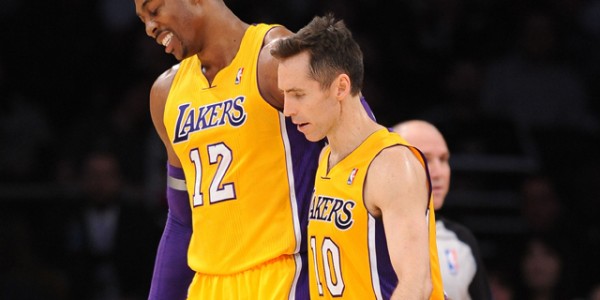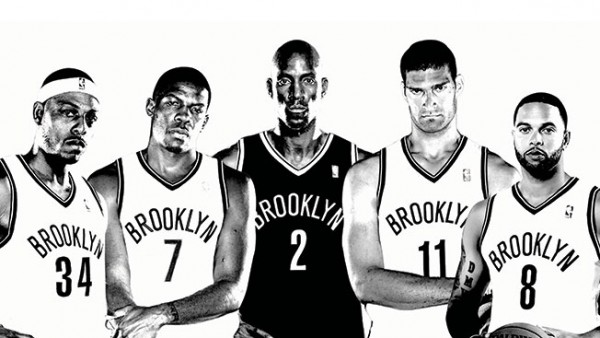While having money to spend over the luxury tax is never a bad thing, the CBA entering its third year in the NBA has made it more about wise financial management more than ever. Teams like the Brooklyn Nets, Houston Rockets and Memphis Grizzlies have made the right choices, each in its own way, while the Los Angeles Lakers, Boston Celtics and Dallas Mavericks have been on the wrong end of the new agreement.
Winners – Brooklyn Nets
Is the new agreement good for rich teams, small market teams or big market teams? If you have money to spend over the luxury tax it’s always good, but it seems that the competition has been downsized, with fewer and fewer NBA teams willing to spend so much money on taxes.
The Brooklyn Nets, it seems, have an endless pit of money and willingness to spend thanks to their Russian owner, Mikhail Prokhorov. He doesn’t mind having an $87 million luxury-tax bill, helping them add Kevin Garnett and Paul Pierce to the already huge contracts they’re paying to Deron Williams, Joe Johnson and Brook Lopez.
Winners – Houston Rockets
This has more to do with having smart management than anything else, which is pretty much the key in cap-handling. It’s not just building a playoff team very quickly by adding two Superstars who have plenty of basketball left in the tank in the span of 12 months, but it’s the dumping of needless contracts like Carlos Delfino and Thomas Robinson that means they’re taking a bit of gamble by sacrificing depth for star quality, but no one has won NBA titles by settling for mediocrity.
Winners – Memphis Grizzlies
Once again, it’s about recognizing the players that actually make you great and getting rid of the expensive assets that can be replaced in other ways. The Rudy Gay trade only made Memphis better, even if they haven’t exactly brought in someone to replace his scoring. Similar to the Charlotte Bobcats, thanks to the new revenue sharing proceeds and related adjustments, a projected $18 million loss turned into a $5 million profit.
Losers – Boston Celtics
It might not be the new CBA that hit the Celtics so hard but a case of sticking too long for an old core of players, while not getting the kind of loyalty they expected from their head coach. However, the Celtics have fallen from being a win away from the NBA finals in 2012 to barely making the playoffs in 2013 and being in tank-mode this season. Due to new luxury tax, the Celtics can’t act like big spenders anymore.
Losers – Dallas Mavericks
The Mavericks let Tyson Chandler go because of the new agreement, but haven’t been able to adjust to the new reality in the NBA, missing out on almost every big-name free agent they’ve gone after, resulting in what can be considered a waste when it comes to making the most of Dirk Nowitzki’s final good years in the league.
Losers – Los Angeles Lakers
The Lakers didn’t try to curb the spending, but it landed them in deep water because they didn’t spend wisely, bringing in Dwight Howard for the final year of his deal and letting him get away for nothing, which didn’t bring them under the tax. The Steve Nash deal, at the moment, seems quite awful, while the deals given to Kobe Bryant and Pau Gasol forced them to settle for a team that wasn’t good enough last season, and probably use the amnesty clause on the wrong player.



One response to “Winners & Losers From the New CBA in the NBA”
… [Trackback]…
[…] Read More: sportige.com/winners-losers-from-the-new-cba-in-the-nba-2013-09/ […]…